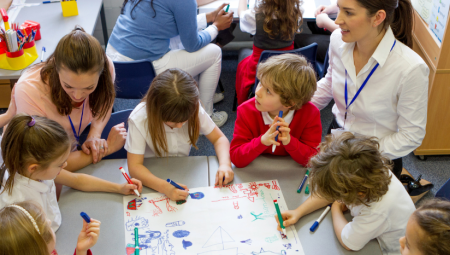Background
The pandemic has had a big impact on community and social care organisations in the UK. These groups are vitally important to communities and society as a whole and their staff face tough challenges while helping vulnerable people. For example, library workers are not only helping visitors to find books but also to address long-term needs like mental health, housing, and jobs. Before COVID-19, these organisations were already stretched to their limit.
The ongoing and increasing need for crisis management, alongside usual services, has created resilience difficulties for staff, managers, and the sustainability of these important services. Social care staff report some of the highest stress levels in the UK. Their overall wellbeing and work-related quality of life dropped significantly during the pandemic. Efforts to reduce burnout have been short-term and of low quality.
Project Aims
Together with social care and community organisation stakeholders, we will create a visual tool showing trends in frontline resilience, frontline resistance, and burnout in two geographical regions. We will also design a strategy to evaluate the possible economic impact of these trends on service delivery and efficiency.
Project Activity
- Scoping review of frontline resilience, frontline resistance and burnout among social care professionals and community organisation staff with a economic health analysis
- Using AI/ ML and social sensing approaches, the development of visual dashboard that integrates a real time indexing and predictions of resilience, resistance and burnout with an economic health analysis platform
- Online survey disseminated among social care professionals and community organisation staff (all respondents anonymous, no IP addresses collected) and PPIE structured conversations to sense check the real time index and prediction dashboard with economic health analysis to ensure easy user interface and inclusion of needed information
- Ongoing refinements, PPIE co-led knowledge dissemination and exchange with stakeholders along with development of NIHR Programme Grant for Applied Research application and submission to enable delivery of a large programme of applied research.
Anticipated or actual outputs
Prototype design of real time visual index and predictive dashboard integrated with economic health analysis platform to inform managerial, policy, funding and frontline worker decisions and processes.
Who is involved?
- Eolene M. Boyd (PI/ Co-Lead), University of Cambridge
- Michela Tinelli (Co-Lead), London School of Economics and Political Science
- Henry Musto, University of Cambridge
- Andy Cowan, University of Cambridge
- Liam Saddington, University of Cambridge
- Doris Mutsando, London School of Economics and Political Science; Redbridge Council
- Ndai Nyamazazare, Redbridge Council
Advisory Group (giving their time ‘in kind’)
- Professor Jagdip Singh, Case Western Reserve University, USA
- Professor Chris Baumann, Macquarie University, Australia
- Professor Fei Guo, Macquarie University, Australia
- Dr Daniel Robins, University of Oxford
- Dr Jonathan Goodman, University of Cambridge
- Dr Angelique Mavrodaris, UK Health Security Authority; University of Cambridge
- Professor David Stilwell, University of Cambridge
- Dr Muzaffer Kaser, Cambridgeshire and Peterborough NHS Trust; University of Cambridge
Contact
Katia Asfalto, ka561@medschl.cam.ac.uk
This project is funded by the National Institute of Health and Care Research (NIHR209616T Programme Development grant)





